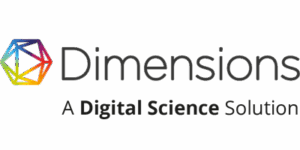7 Overlooked Generative AI Database Platforms That Top Lab Scientists Rely On
Scientists are one of the most prominent workforces that generative artificial intelligence (AI) could empower. The ability to sift through decades of dense research could yield unprecedented revelations about medicine. Experts must use these resources to pore through databases to expedite discovery, and many are underutilized. Which research databases have generative AI features to help pharmaceutical experts improve their lab operations?
The Methodology
These criteria determine what makes a quality AI-powered research database for laboratory professionals.
Data Density and Quality
The information used to train the generative AI must be credible and thorough. Both are required because robust datasets are crucial for establishing a credible reputation. Too many factors in the medical world could influence research. Therefore, the information must consider as many accurate variables as possible to ensure quality. Additionally, the organization should undergo regular reviews of its platforms to verify trustworthiness.
Usability
Researchers should be able to access information with questions, semantic searches or visual recognition, among other features. The system should be compatible with various prompting methods and discovery options to make the product user-friendly and accessible.
Including only text-based options for syntheses discounts the value of the countless other generative AI capabilities that could yield additional insights. The layout must be intuitive so users can maximize the utility AI databases have to offer.
Visualizations and Organization
Databases should have extra functionality to gather information and generate it into other forms. For example, it should be able to create knowledge graphs or suggest related industry research to read to follow up on queries. The system must have immaculate metadata for this to be effective, so it can understand the relationships between disparate data points and studies.
Third-Party Tools and Integrations
Companies should be able to upload their internal databases, connect additional applications and integrate other supporting documents easily. Lab experts have countless information streams in varying media, some of which are potentially siloed. Corporations should make their products flexible so they can consider external resources, because it promotes automation and efficiency for clients. Without this consideration of user experience, the efficiency gains could be lower.
Collaborative Features
Researchers need to be able to communicate across platforms and nations. Without internal mechanisms for safe messaging and document protection, medical experts will not gain as many benefits from using AI. These communications functions, and change management logs for traceability, separate the most competitive agencies from the rest.
1. Dimensions AI
Dimensions AI is one of the top-performing resources available because it offers global data quickly and accessibly. The information promises to always be up-to-date and comprehensive, pulling from as many reputable outlets as possible. Over 70% of its assets are full-text indexed, making it the most sizable collection on the planet.
The top life sciences and medical agencies trust Dimensions AI because the products are convenient, flexible, customizable and inclusive. These include secure data management tools, reporting dashboards, compliance support and more. Its mission is to encourage community in the pharmaceutical world by building up any clients that win awards or achieve groundbreaking insights by using the platform, promoting knowledge-sharing and celebration throughout the industry.
The reason Dimensions AI is a notable competitor is that it is proactive against data breaches and promotes ethical AI interactivity. Users are able to do this without compromising the exploratory features of their research databases, and those interested can speak to the organization’s experts to learn more about how their tools can solidify trust in their stakeholders.
2. Elsevier’s Scopus
Elsevier’s Scopus has an AI-powered science research assistant called Clarivate. It promises to elevate labs beyond a chatbot’s capabilities by acting like a co-worker. It pulls information from the Web of Science Core Collection — one of the most reputable citation databases. Clarivate incorporates responsible AI so it aligns with research expectations and applications.
Clarivate emphasizes how much time it can save researchers with its intelligent discovery function, minimizing the number of queries users have to input. It pores through literature and generates assessments with minimal intervention required, but still produces valuable information as if automated.
It is also one of the most accessible tools on the market, because its foundation is task-based guidance. Everything is clearly laid out in a minimalist dashboard. Clarivate has many walkthroughs in addition to a library of prompts derived from the context of other queries to lower resistance to exploring new ideas. It saves teams hours of brainstorming to try and find the most productive path forward when designing new products.
3. CAS (Chemical Abstracts Service)
CAS has a platform called BioFinder Discovery, which has enabled some of the biggest medical institutions to achieve massive breakthroughs. This includes the Cleveland Clinic, and is working to advance brain health knowledge and is connected to Alzheimer’s research. It accomplished this by using quantum computing alongside generative AI tools. It also has the most pharmaceutical-specific BioFinder Discovery product, which helps chemists undergo drug discovery.
These tools use advanced predictive analytics capabilities alongside vast amounts of biological data to expedite development. They work well in tandem to analyze every element of a drug. The software allows data to be searchable by categories, including protein type, disease variant and more.
CAS also offers Custom Services, which can complement efforts to use these programs. The team consults with clients and addresses any research and development problems they face. They can teach users ways to leverage platforms optimally so they can unlock everything they have to offer. This focus on education, in addition to the robustness of its scientific literature, is what makes it stand out.
4. BenchSci
BenchSci is one of the only platforms that describes itself specifically as a disease biology generative AI tool. It is curated for pharmaceutical research and development with its AI assistant, ASCEND. Behind its capabilities are knowledge graphs and ontological knowledge bases that verify its determinations. Then, it suggests paths toward more productive experimentation.
Its unique value proposition lies within its structured data. It even has closed-access papers and a proprietary multimodal large language model (LLM) and smaller models to give the most precise, reproducible responses. Because of its pharmaceutical focus, it speaks to lab researchers like a copilot. There are even several specialized assistants for different workflows and dimensions, including analyzing return on investment or task-based understanding.
BenchSci has several integrations to make report generation and internal data transfers straightforward, so teams can get the most out of the data they already have. With investors as large as Google, customers can know this is a platform to trust.
5. Genestack
Trusted by the University of Colorado, AstraZeneca and other big names, Genestack is a comprehensive AI-powered ecosystem for medical research. Its goals are to speed time-to-market while considering the ROI. Clients can also load data into Genestack, including metabolomics, imaging, clinical variables, and information from wearable medical devices.
The platform organizes information in a visually friendly catalogue, indexing disparate data into a machine-readable dashboard. Everything integrates into existing workflows, so clients concerned with transition periods can rest easier. The team promises that no migration is necessary to use the software.
Everything is completely customizable for users, including manual or automated API configuration. FAIR principles are the backbone of Genestack, which helps users ethically manipulate, export and use everything from imaging data to multiomics. The organization also touts robust cybersecurity by allowing shared information to be directly within the platform instead of leaving it to email.
6. Cenevo
Cenevo promotes scientific discovery with its AI-powered labs. Its two products, Labguru and Mosaic, reduce research teams’ operational costs by reducing the number of manual steps. Mosaic has over 150 possible integrations, making it significantly compatible with other information resources.
Mosaic tracks inventory, promotes collaboration and automates workflows. Labguru manages the information, leverages AI-powered informatics and embraces traceability to ensure compliant operations. Cenevo is one of the most data-centric options on the market, given the organizational challenge of centralizing lab data, especially internationally. It promises coherence across operations, preventing data overload and clarity issues.
The team is known for solving the problem of digital transformation, as so many labs still use spreadsheets and manual methods for tracking progress. The platform is trusted by over 950 customers and is trusted by eight out of ten of the top biopharmaceutical agencies.
7. Benchling
Bioresearch’s biggest names, including Moderna and Gilead, use Benchling to incorporate AI and automation into their processes. The product is mostly integration-focused, with a primary goal of centralizing research assets for the most effective experience. It includes an easy-to-use file viewer to make collaboration simple and fast.
Its AI agent eliminates the “toil” associated with research so experts can focus more on the science. It can do everything from extracting extra data from complex files to creating SQL-based visualizations without the need for coding experience and executing data entry. Its other capabilities include collating wet lab data, optimizing molecules and enhancing assay development with advanced machine learning capabilities.
Benchling also automates other time-consuming processes, including data ingestion. Its app, which has a streamlined, simple-to-learn interface, captures everything. It embraces the cloud to make data as accessible as possible, supporting research from niches like molecular biology, bioprocessing and more. If users want an experience with AI that focuses on swift transfer of information, Benchling is the place to go. The company is also known for its commitment to compliance and security.
FAQ on Research Databases and Academic Platforms with AI Features
Organizations may know which research databases have generative AI features, but adopting the practice into a laboratory requires more insights to be productive.
How Is AI Used in Pharmaceutical Research?
Medical researchers and lab technicians need AI for drug discovery. AI can assess potential formulations, determining the most effective ingredients based on specific health metrics. Then, it can use molecular modeling to test the drug’s efficacy against hypothetical individuals, using predictive analytics to execute trials without wasting materials or time on manual attempts.
What Challenges Might Pharmacies Face When Integrating AI Technology?
Medical companies have numerous obligations to uphold, even in the research phases. In addition to adhering to compliance frameworks, there are many ethical considerations when handling data. In the unregulated world of AI, many conflicts of interest could arise from introducing the technology. Many organizations may want to avoid the unknown until more standardization occurs.
Additionally, AI hallucinations are still prevalent, particularly in generative AI. For an industry as sensitive as the pharmaceutical sector, relying on false AI determinations could lead to public health risks and cost lives without adequate checks and balances.
Finally, bias is still pervasive in health care data. Many gaps exist, especially for minority populations, leading to potential inaccuracies or generalizations that could negatively impact demographics with less research associated with them. Educating medical data scientists and promoting bias training can help curate databases, but the research need will persist.
What Are the Limitations of AI in Medicine?
Most limitations surround the ethics of fairness and data privacy. While notable organizations, like HIPAA, attempt to create guidelines for safe and fair information use, AI applications are still a new territory. Cybersecurity analysts and data privacy regulators alike are currently establishing ways to safeguard personally identifiable information, as it is essential to maximize the value of generative AI for medical research.
However, the threat landscape constantly adapts to these experts’ defensive strategies. As AI evolves, new vulnerabilities will be a consistent concern, leaving an infinite amount of incoming health care data vulnerable to extrication or deletion. The risks are high. Therefore, workforces may work with smaller, more niche datasets to segment information. However, this could make determinations less holistic and limit insights.
The Best AI-Powered Databases for Pharmaceutical Researchers
Lab technicians and researchers have an infinite amount of knowledge to gain by seeing the relationships between studies and medical data. However, manually parsing the texts and connecting the dots is an obsolete task, especially with research databases and academic platforms with AI features.
Pharmaceutical research outfits must embrace these assets to set a precedent for drug discovery. Leveraging AI enhances patient-focused outcomes, as it prioritizes faster solutions for a more effective future in medicine.























